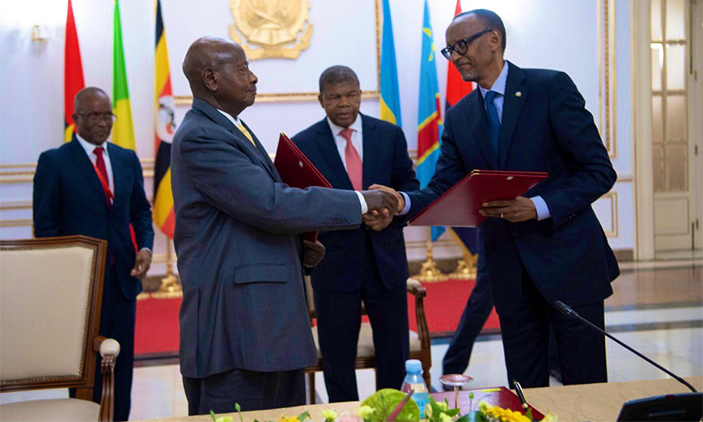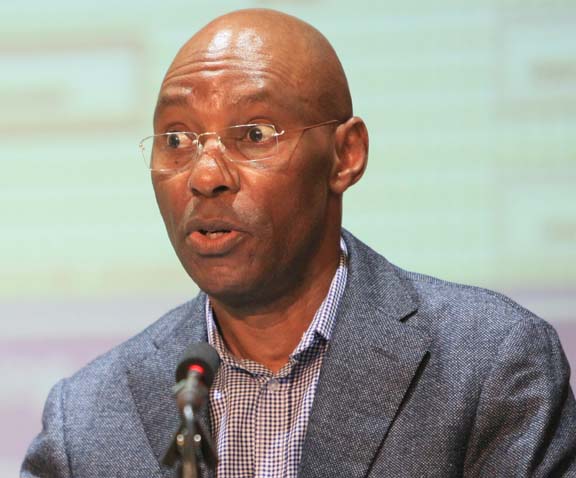On Wednesday last week, Ugandan President Yoweri Museveni and Paul Kagame of Rwanda signed a peace pact in Angola, signaling an end to the bitter diplomatic relations between Kampala and Kigali that had resulted into the closure of Gatuna border. But what is mind boggling being that up to date, the Gatuna boarder is still closed with no official communication from Rwanda government.

Despite the signing, the New Times newspaper, which is Rwanda government’s mouthpiece, continued to publish propagandist articles blaming the Kampala regime for the impasse.
As if that was not enough, Rwanda went ahead and blocked access to Ugandan news sites such as The Observer(www.observer.ug), NilePost (www.nilepost.ug), Softpower (www.softpower.ug) and New Vision(www.newvision.co.ug). The blocked websites can only be accessed via Virtual Private Networks (VPN).
This happened a few days after when the Uganda Communications Commission (UCC) ordered Ugandan internet service providers (ISPs) to block access to Rwanda’s The New Times website (www.newtimes.co.rw). The writer could not independently verify whether the blocking of access to Ugandan news sites by Rwandan authorities was in retaliation to UCC’s move.
UCC says the order was because the Rwandan paper has continued to publish ‘harmful propaganda’ against Uganda. UCC spokesperson, Ibrahim Bbosa, said UCC had directed “internet service providers to block New Times for publishing harmful propaganda that endangers the national security of Uganda.”

Adding that, “We are engaging the regulator in Rwanda and hope this will be temporary,” Bbosa said. Currently, an attempt to visit the newspaper’s website from Uganda returns an error.
But for many in the media this was nothing new(censorship), as intimidation and violence is an almost daily threat. Uganda is now ranked 117th out of 180 countries in Reporters Without Borders’ 2018 World Press Freedom Index, five places lower than in 2017.
Demystifying The Trend
Uganda has a long history of media censorship. The country’s first post-Independence head of government, Milton Obote who became prime minister in 1962, banned the intellectual Rajat Neogy’s Transition Magazine. Idi Amin overthrew Obote in 1971 – during his regime, key journalists dissapeared without trace.
The press was a central target during the second Obote government between 1980-1985 and its militiary successor. Museveni’s rise to power in 1986 was met with relief. It’s almost quaint to think back to a time when Uganda, under a newly elected Museveni, was held as a paragon of African democracy with all the freedoms it entails.
In 1990, four years after Museveni came to power the country was still experiencing a new political dawn. A Danish-produced documentary (still available in the archives of Uganda Broadcasting corporation television), then investigating the depth of freedom of the press in Uganda, was clearly enthralled.
The narrator exclaimed that; A free press in Africa, a rare thing in Africa and This is not a mere change of the guard but a fundamental change.
But things started changing for the worse in the mid-1990s. This included the government shutting down media platforms, legal threats, the infiltration of newsrooms by security spies, thuggery, intimidation and withholding of advertising from institutions deemed to be critical of the government.
In the US, traditional censorship was basically an exercise of cut and paste. Government agents inspected the content of newspapers, magazines, books, movies, or news broadcasts, often prior to release, and suppressed or altered them so that only information judged acceptable would reach the public. For dictatorships, censorship meant that an uncooperative media outlet could be shut down or that unruly editors and journalists exiled, jailed, or murdered.
Starting in the early 1990s, when journalism went online, censorship followed. Filtering, blocking and hacking replaced scissors and black ink. Some governments barred access to Web pages they didn’t like, redirected users to sites that looked independent but which in fact they controlled, and influenced the conversation in chat rooms and discussion groups via the participation of trained functionaries. They directed anonymous hackers to vandalize the sites and blogs, and disrupt the internet presence of critics, defacing, or freezing their Facebook pages or Twitter accounts.
Reversing The Trend
Despite all the threats and challenges, the media in Uganda continues to tackle controversial issues and break big stories of corruption and abuse of power. Nation TV’s On the Spot,NBS TV’s Frontline, Capital Radio’s Capital Gang, and Radio Simba’s Gasimbaganye ne Bannamawulire, as well as CBS Radio’s current Affairs programmes continue to court politically controversial topics. They host government critics and civil rights activists who openly speak out.
The president also allows press conferences where probing questions are asked which continue to at least afford a semblance of press freedom in the country in spite of the lurking iron fist.

